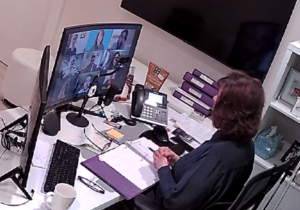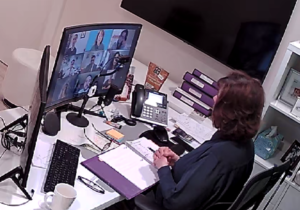We're Being Reasonable - Why Aren’t They?
by Judge Elaine Gordon (ret.)

Elaine Gordon is a retired Superior Court judge and founder of Gordon ADR. She is a member of the National Academy of Distinguished Neutrals and a Distinguished Fellow of the International Academy of Mediators.
A Note from Judge Gordon
A note from Judge Gordon I hope you are enjoying this beautiful New England winter. While our first major snow-storm came late this year, I must admit I'm ready for spring in a few short weeks.
Thank you to the Center for Dispute Resolution at QUSL for appointing me a Senior Distinguished Fellow. I was also invited to teach at Quinnipiac this semester. I'm really enjoying the experience and the opportunity to interact with bright and interesting law students.
After completing more than 800 cases since retiring from the bench in 2011, I remain very grateful to the hundreds of lawyers who continue to trust me to mediate and arbitrate their cases. I love the interaction with lawyers and their clients. I find the work very challenging and truly rewarding. Thank you.
By trying to understand your opponent’s point of view, you may actually find ways to strengthen your own position.
Almost every day at some point in the mediation, if things are not going smoothly, a lawyer will ask me why the other side cannot be reasonable?
It is not unusual for one or both sides to feel the other side is overvaluing their case and failing to be objective about the risks of compromise. Sometimes however, the absence of reason is not the problem. Emotions and/or the presence of real life problems may be driving a party’s decision making.While these issues may not be “rel- evant to the dispute” they are factors critical to the settlement.
Don’t ignore them. Seek them out and then try to address them. There are basically two ways for mediating par- ties to make sure each side’s view is heard and understood.
The Mediator carries the information between the parties.
- Listen to the Mediator’s outline of your opponent’s case. Try to understand how an opponent believes they can best present the facts to appeal to a jury. Acknowledge difficult facts and theories.
- Provide the Mediator with the ammunition needed to address these facts and theories you have just learned. Do this in a non-argumenta- tive way. Show that you understand the other side’s case and then arm the Mediator with the information to address the actual issues they raise.
- Be prepared to alter your own valuation and views of the dispute. This is not a sign of weakness. Adaptability is a central part of the mediation process.
Counsel and/or the parties meet jointly with the Mediator.
- Speak as if you are talking to a neutral person, not an opponent who is coiled and ready to argue. Listen carefully and patiently.
- Share objective information and summaries of what your witnesses are prepared to say. This may be the time to reveal unknown and powerful information.
- Ask the questions you really want answered about the other side’s settlement stance and listen to the answers.
- Offer a solution and explain why you think it addresses everybody’s strengths and risk. Ask your opponent for a reaction and build from there.
In this conversation, you will be helping the Mediator narrow the distance to settlement. Direct communication between counsel may also help to keep the Mediator from being perceived by one party as favoring the other party’s position.
Remember, mediation provides both an opportunity to persuade and an opportunity to understand. It is the latter which leads to settlement.































